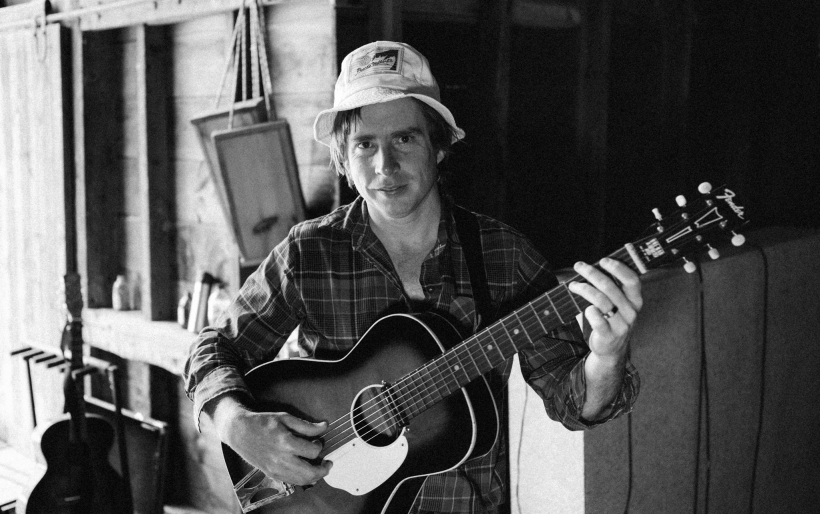Sean Fennell: It seems like you had a pretty distinct, unique vision of how you wanted to do things for this record. I’m curious as to whether it was ever difficult to match that vision or if there were maybe times you had to fight an instinct to slip into the way you would have done things previously?
Scott McMicken: I think you’re right, in that I did go into the thing with a lot of vision, but in many ways that vision was defined by openness, by not really having a plan. That in and of itself is a type of vision compared to what I was used to where I would work on songs, flesh them out and explore every possibility I could think of. This was a case where I was just going in with a simple song and the essence of what it meant to me and that was all I was presenting. So from there, the “vision” was going to be made in real time as a combination of the people that were there, most of whom were strangers to me. I didn’t even know what to expect out of these people, and their energy and styles of playing. So there was a strong vision on the one hand, but on the other hand the vision was defined by no vision, you know, and just creating an environment where it felt good. There was no pressure, there was a lightness, and there was an openness to explore. I didn’t have a vision in the traditional sense. I didn’t know what the music was gonna sound like. I was leaving that up to the moment.
You can think empirically about the details and the specific nature of the thing you want to make, you can map that all well in advance, you can make your plans to ensure that goal, or on the flip side, you can leave all that off the table and focus much more on the human nature of a collaborative process and playing music with others. Having an experience like this one, which was so potent in that regard, really made the lines between making music and being alive and being a person, a son, a husband, you know, a brother, and a friend completely disappear. Because at the end of the day, what that type of musical vision requires of me is a much more internal sense of comfort, presence, sensitivity and confidence. And so that’s why I feel as though the positivity of this experience was wonderful in the sense of generating music that I really love and believe in, but has also left me feeling more fortified as a human being. And I’ve been able to carry that strength forward through numerous other collaborations and projects.
SF: So you kind of mentioned it there but, for this record, you almost intentionally wanted to work with people that you hadn’t worked with before. Where did that instinct come from? Is that just trying to create this atmosphere of something fresh and new?
SM: Well, we knew we wanted the record to have a very live studio vibe, without a ton of overdubbing, and this feeling of building the songs from scratch. So right away I had all these people in mind that I would love to have worked with, people I knew but people I had never worked with. And so I wasn’t necessarily right out of the gates thinking that the musicians needed to be strangers, but I had reached out to a number of these people that were friends of mine, and it just turned out, most of them weren’t available. Meanwhile, [producer] Nick Kinsey was suggesting all these people he’d worked with in various capacities that he thought, given the nature of what we had been discussing, would be a really great match. I really knew and trusted Nick and therefore whatever impulses he would have, I believed we’re going to be in the service of our goal. And man, am I glad I did. It was wild. I mean, in the end, these are all people I now love and cherish and consider close friends. To just thrust yourself into a situation with that much openness with people you don’t really know and then day after day, witnessing how rewarding that can be was really impactful. There was such a generosity and a wellspring of beauty opening up in these dynamics among these people. It was really powerful. It’s almost like being shipwrecked, and all of a sudden being on an island with some people, and you’re just counting on him to survive. There’s this sort of family ethos that develops in service to the overall egoless goal of the thing, which was really wonderful.
